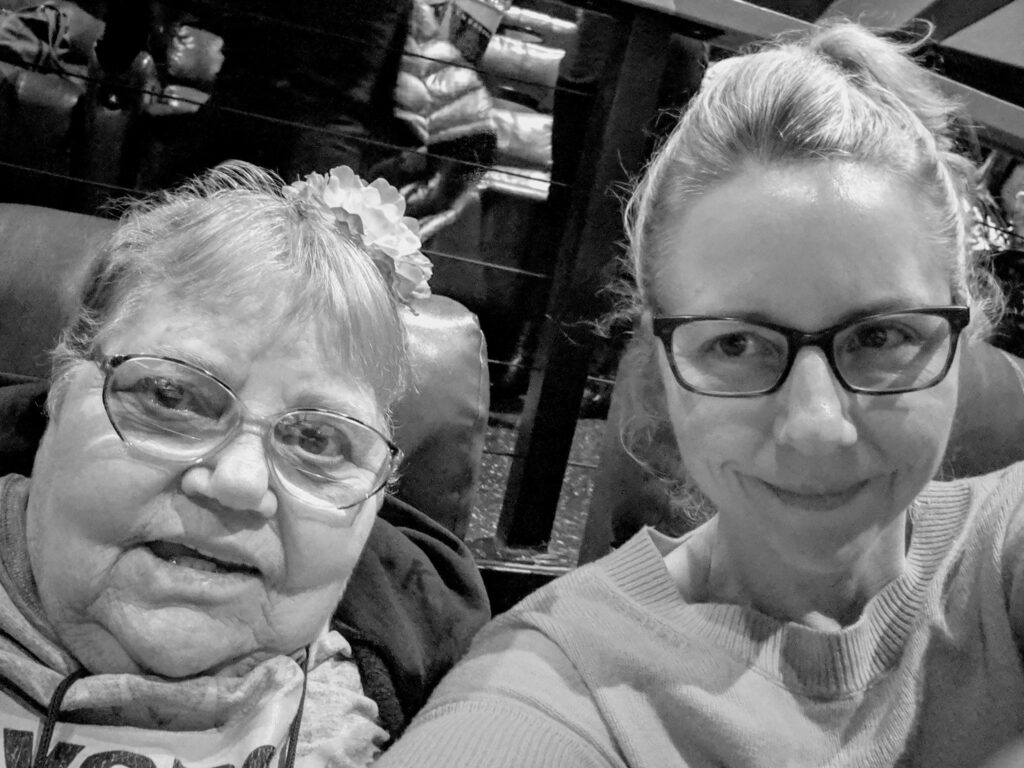
Vickie Jean DeHamer, Staff writer
PUBLICATION: Southwest Wake News
SECTION: FRONT PAGE
DATE: August 19, 2009
EDITION: APEX
Page: A1, Column
Eunice Kennedy Shriver passed away last week. I didn’t know a lot about her, but my first though was that she probably had it better than most.
She’d lived to 88 years old and could likely afford private doctors and nurses. I imagined her in her last moments, surrounded by other Kennedys and Shrivers in smart suits and tasteful sweaters, doing all the right things.
But I couldn’t really relate.
At least not until I learned more about her sister Rosemary, who was mentally disabled and institutionalized at an early age. Eunice Kennedy Shriver made it her life’s work to get retarded people – a term not shied away from in her day – out of hospitals, homes and back bedrooms and into the unapologetic light of day.
I could relate to that.
You see, my own mother is mentally disabled, or “a little slow,” as she puts it. And she’s not shy about saying it either.
She wasn’t like my friends’ moms. She didn’t drive or have a job. She never drilled me on the alphabet or read to me anything other than picture books. She got a check every month from the state, and we lived with Nanny, my grandmother. I could get away with most anything because, between the two of us, I was the grown up.
Then I turned 5 and went to school. It wasn’t just me and my mom anymore. It was me, my mom and the eyes of the world.
“That’s your mom?” other kids would ask, eyeing her big glasses and oversized Oakland A’s T-shirt, which she wore most every day. She was like a big kid herself. She never really told you what to do so much as warn you about getting into trouble with other adults. She’d walk me to school every day and my teachers seemed concerned about her ability to get herself home.
As I got older, it got worse. Incredulity turned into meanness. I didn’t physically resemble my mom and was a quick learner. Kids started to tease me that I was adopted or would someday have my “retard gene” kick in. Whenever my mom came to school, they made stupid faces behind her back. I probably heard the “R” word, but I pretended I didn’t. This was in the 1980s, nearly 20 years after Shriver started her campaign for special people acceptance. In school, I of course had my own campaign for acceptance going, and I distanced myself from my mother when necessary.
But the thing that hurt me most about the teasing was that she was such a great mom. Probably better in some ways than the mothers of the kids who were teasing me. Maybe that’s why they were so mean.
I never wanted for a hug or a meal. I always had her undivided attention. When I was sick, she’d wait on me hand and foot, making homemade milkshakes that would take a good 20 minutes to prepare. She never let the ice cream soften before mixing. She’d battle with it and the milk in the glass that was always too small, mixing and sloshing until it was smooth. They remain the best milkshakes I’ve ever had.
By the time I went off to college, our relationship hadn’t changed. There was never any big fallout over independence, because my mom never told me what to do. We kept our milkshake-and-hugs association, which was comforting but frustrating when I needed grown-up advice.
I was changing, but she never would.
Today she lives in a senior community. Nanny passed away. And for the first time in her life, mom has her own apartment. I call her and am amazed to hear what she’s doing: taking the bus to the store, making friends in her building, thinking about adopting a dachshund. I ask her if she’s lonely, if she’s able to pay her bills. Yes, yes, she says. I’m having fun!
Shriver’s legacy is proof we can’t assume. Not that money and status can shield us from pain any more than a lower IQ can keep us from joy.
And even though my mom could never teach me how to apply for college or write a check, that’s definitely one thing she was an expert on: pure, uncomplicated joy.
To me, she’s a genius.
